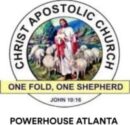Building a 21st-century church involves a thoughtful blend of tradition and modernity, addressing the spiritual, social, and technological needs of contemporary society. Here are some key elements to consider:
1. Vision and Mission
Purpose: Clearly define the church’s vision and mission. This should reflect contemporary values while staying true to core spiritual beliefs.
Inclusivity: Promote an inclusive environment that welcomes diversity in ethnicity, gender, age, and socioeconomic status.
2. Spiritual Growth
Relevant Sermons: Deliver sermons that address current issues and challenges faced by the congregation, providing practical and spiritual guidance.
Discipleship Programs: Develop programs for continuous spiritual growth, including Bible studies, prayer groups, and mentoring.
3. Community Engagement
Outreach Programs: Initiate community service projects, partnerships with local organizations, and social justice initiatives.
Support Systems: Offer counseling, support groups, and resources for various life challenges such as addiction, mental health, and family issues.
4. Technology Integration
Online Presence: Maintain a robust online presence through a modern website, social media platforms, and a mobile app.
Live Streaming: Stream services and events online to reach a broader audience.
Digital Resources: Provide online Bible studies, sermon podcasts, and digital devotionals.
5. Worship Experience
Modern Worship: Incorporate contemporary music and multimedia elements into worship services to create an engaging experience.
Interactive Services: Encourage congregation participation through discussions, Q&A sessions, and interactive prayer.
6. Facilities and Environment
Modern Facilities: Ensure the church building is accessible, comfortable, and equipped with modern amenities.
Green Initiatives: Implement eco-friendly practices to demonstrate stewardship of the environment.
7. Education and Training
Leadership Development: Invest in training and development programs for church leaders and volunteers.
Educational Programs: Offer classes and workshops on various topics, including theology, personal development, and practical skills.
8. Financial Stewardship
Transparent Finances: Maintain transparency in financial matters and communicate openly with the congregation about budget and expenses.
Sustainable Practices: Develop a sustainable financial model that includes diverse revenue streams such as donations, fundraising events, and community partnerships.
9. Youth and Family Ministry
Youth Programs: Create dynamic programs and activities tailored to children and teenagers to engage them in the church community.
Family Support: Offer resources and events for families, including parenting workshops, marriage counseling, and family retreats.
10. Global Perspective
Mission Work: Participate in and support global mission initiatives.
Cultural Awareness: Promote cultural understanding and partnerships with churches and organizations worldwide.
Implementation Strategy
Assessment: Conduct a thorough assessment of the current church structure, strengths, and areas for improvement.
Planning: Develop a strategic plan with short-term and long-term goals, including timelines and measurable outcomes.
Communication: Regularly update the congregation on progress and involve them in the planning and implementation process.
Adaptability: Stay flexible and open to feedback, making adjustments as needed to better serve the community and fulfill the church’s mission.

